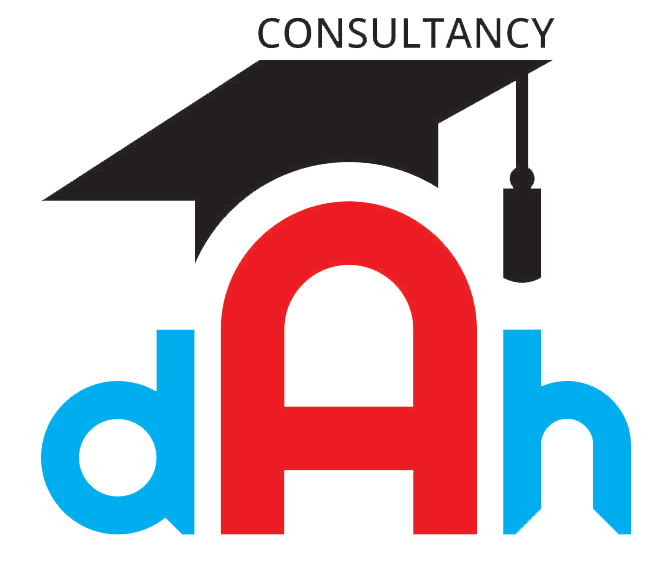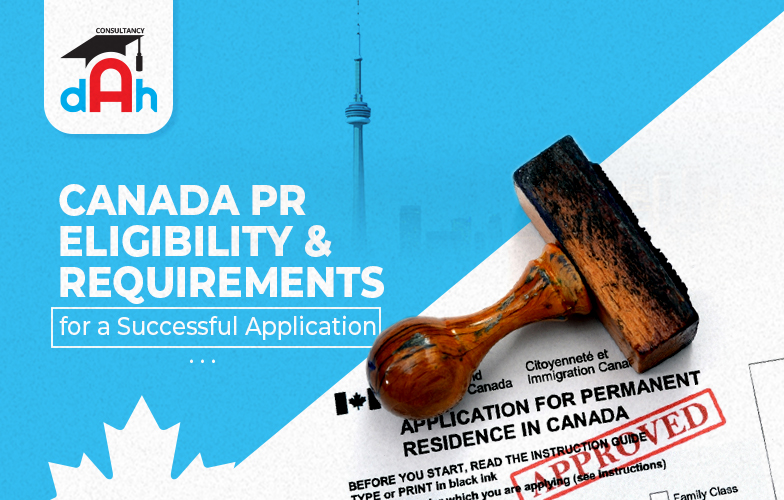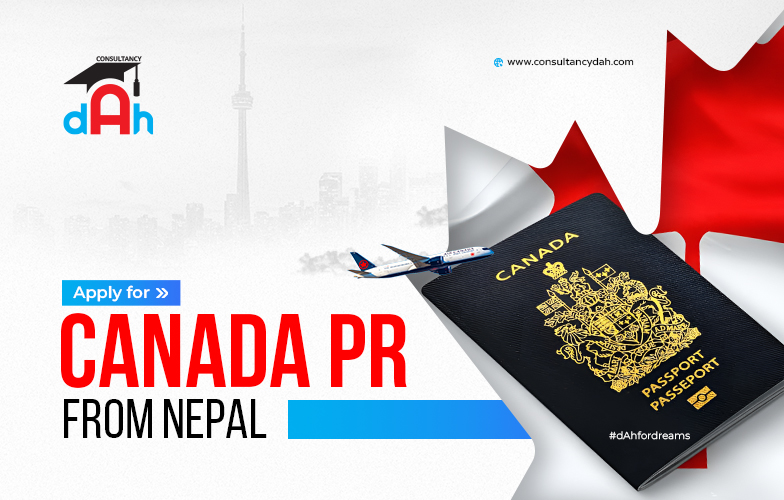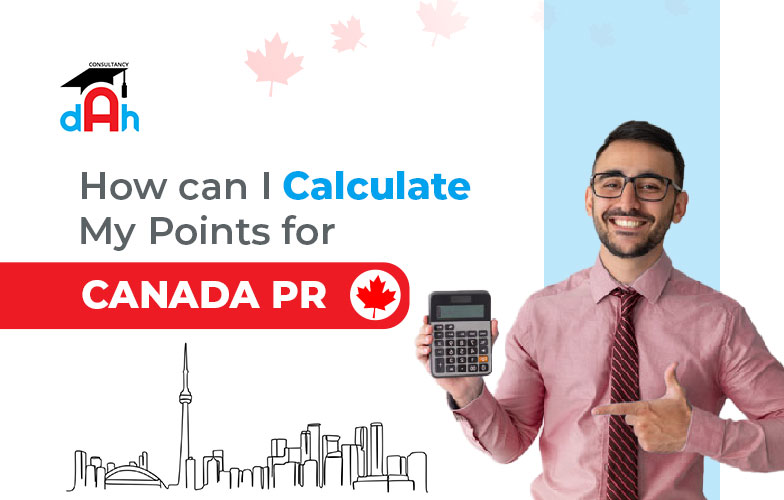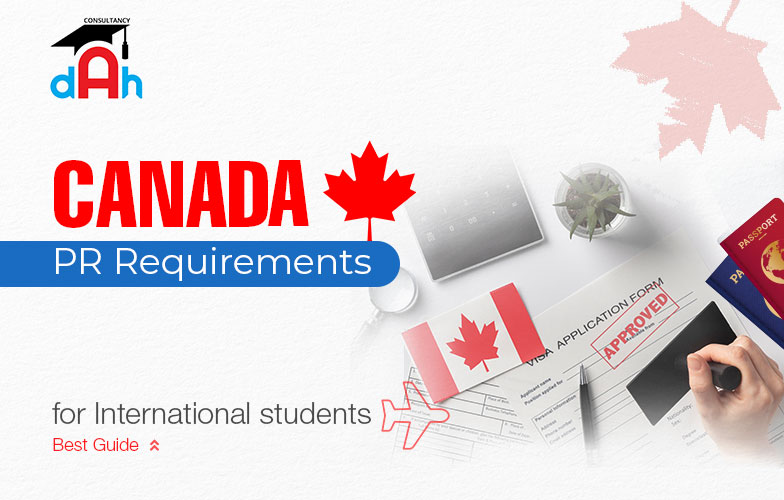In the last few years, Canada has been welcoming country to international students, who want to study, work, or live there. Canada has great opportunities, especially in technology, education, and healthcare. If you are consider applying for Canada, understanding the eligibility criteria and application requirements for Permanent Residency (PR) is important.
What is Canada’s PR Point System?
The Permanent Residency (PR) point system in Canada assesses eligibility based on factors such as age, work experience, education, and language proficiency. You get points for these things, and if you have more points, you have a better chance of becoming a permanent resident in Canada. You can use a tool called a PR points calculator to see if you have enough points to qualify.
In this blog we will discuss on detailed about Canada PR Eligibility and requirements for successful application:
Express Entry System: Canada PR Eligibility and Requirements for a Successful Application
The Express Entry system is a points-based immigration system used to manage applications for permanent residency in Canada. The eligibility criteria include:
- Work Experience: You must have worked in Canada doing a skilled job for at least one year in the past ten years.
- Language Proficiency: Proficiency in either English or French is crucial. Applicants are required to take language tests such as IELTS (for English) or TEF (for French).
- Education: You must have finished some kind of education after high school. It could be a degree, diploma, or certificate from a school that Canada recognizes.
- Express Entry Profile: You have to make a special profile online. In this profile, you tell Canada about yourself—like how old you are, what education you have, and how well you speak English or French. Canada gives you a score based on these things.
Provincial Nominee Programs (PNPs): Canada PR Eligibility and Requirements for a Successful Application
Provincial Nominee Programs (PNPs) are special immigration programs in different parts of Canada. Each province has its own set of rules for these programs. To qualify, you need to meet certain conditions, and these conditions can be different depending on the province. Some common requirements include:
a. Job Offer: Some provinces might ask you to have a job offer from a company in that province.
b. Connection to the Province: You need to show that you want to live in that specific province. It is not about getting a job; you should plan to settle down there.
c. Skills and Education: You must have the right skills and education for the specific program in the province you’re applying to.
Family Sponsorship: In Canada, if you are a citizen or a permanent resident, you can help your family members become permanent residents too. Your family members can be your husband or wife, kids who depend on you, and even your parents or grandparents. This means they can live in Canada with you permanently.
a. Relationship: To sponsor a family member, you need to have a true and genuine relationship with them. This means you should be really connected with each other as family.
b. Financial Support: You must show that you have enough money to take care of your family members. This is important to make sure they can settle down well in Canada.
c. Undertaking: When you sponsor a family member, you’ll need to sign a promise. This promise says that you’ll support your family member for a certain period. It’s like a commitment to be there for them as they adjust to their new life in Canada.
Canadian Experience Class (CEC): Canada PR Eligibility and Requirements for a Successful Application
Canadian Experience Class (CEC) is a way for people who have worked in Canada to become permanent residents more easily.
a. Work Experience: To apply, you need to have worked full-time in Canada for at least 12 months in the three years before applying.
b. Language Skills: You must be good at speaking either English or French.
c. Legal Status: While working in Canada, you must have followed all the rules and had the right legal status.
Read More: Best Guide for Canada PR Requirements: Process, Eligibility, Fee, and Time
Benefits of Canadian PR:
- Opportunity to live and work permanently in Canada.
- Option to sponsor family members.
- Increased prominence in the job market.
- Access to world-class healthcare facilities.
- Potential for Canadian citizenship, government benefits, and voting rights.
How Does the Canada PR Point System Work?
In Canada, if you want to become a permanent resident, the government uses a point system to see if you qualify. They give you points based on age, education, work experience, and way of living in Canada. You need a minimum score to be eligible, and this score usually falls between 67 to 75 points. The higher your score, the better your chances of being approved for permanent residency.
Read More: Apply for Canada PR from Nepal
Best Courses in Canada to get PR:
- Dentist/Nursing
- Media & Journalism
- Doctors (Practitioners and Family Physicians)
- Chartered Accountants
- Finance & Business
- Software Engineering
- Food Technologist
- Engineering Management & Core Engineering
- Sales, Advertising, and Marketing
- Mechanical Engineering
- Medicine, Biosciences, and Healthcare
- Master of Business Administration
- IT & Computer Science
Canada PR Requirements for International Students:
To be eligible, you need to meet certain requirements. These include being a certain age, being good at English, IELTS score required for canada pr (with a score of at least 7), being in good health, passing a security check, having studied in Canada for at least one year, having one year of work experience in a skilled job, and meeting the criteria for the Express Entry program.
IELTS Score Required for Canada PR:
Candidates must score a minimum of 7 in IELTS to qualify for immigration programs.
Cost of Applying for Canada PR:
Getting permanent residency in Canada requires some cost estimates. Here is the cost breakdown:
For Yourself:
- If you’re applying for permanent residency, you’ll need to pay a processing fee and a right of permanent residence fee. Together, these are CA$1325.
- If you don’t need the right of permanent residence, then the fee is CA$825.
Spouse or Partner:
- If your spouse or partner is also applying, they will have similar fees. The processing fee with the right of permanent residence is CA$1325, and without it, it’s CA$825.
Dependent Child:
- If you have a dependent child, there’s a fee of CA$225 for their application.
Biometrics:
- Everyone applying needs to provide biometrics. The fee for this is CA$85 per person.
Conclusion:
Getting permanent residency in Canada offers many great chances. With the help of Consultancy dAh, the best consultancy for Canada in Nepal you can easily understand the rules for becoming a permanent resident in Canada. Choose a course you like, study, work, and get expert guidance to achieve permanent residency in Canada.
FAQ’s
How can I calculate my Canada PR points?
Check out our blog about the Canada PR Points Calculator for an easy, step-by-step guide on figuring out your PR points.
Can I apply for PR if I don’t have a job offer in Canada?
Yes, it’s possible. While a job offer can boost your points in the Express Entry system, it’s not mandatory.
How long does the PR application process take?
The time it takes to process your application depends on the program you apply for. For Express Entry, it usually takes about six months, but it might take more time for other programs.
Can I work in Canada while waiting for my PR application to be processed?
If you have a valid work permit, you can work in Canada while your PR application is being processed.
Are there age restrictions for Express Entry?
While there is no maximum age to apply, points for age decrease after the age of 29.
